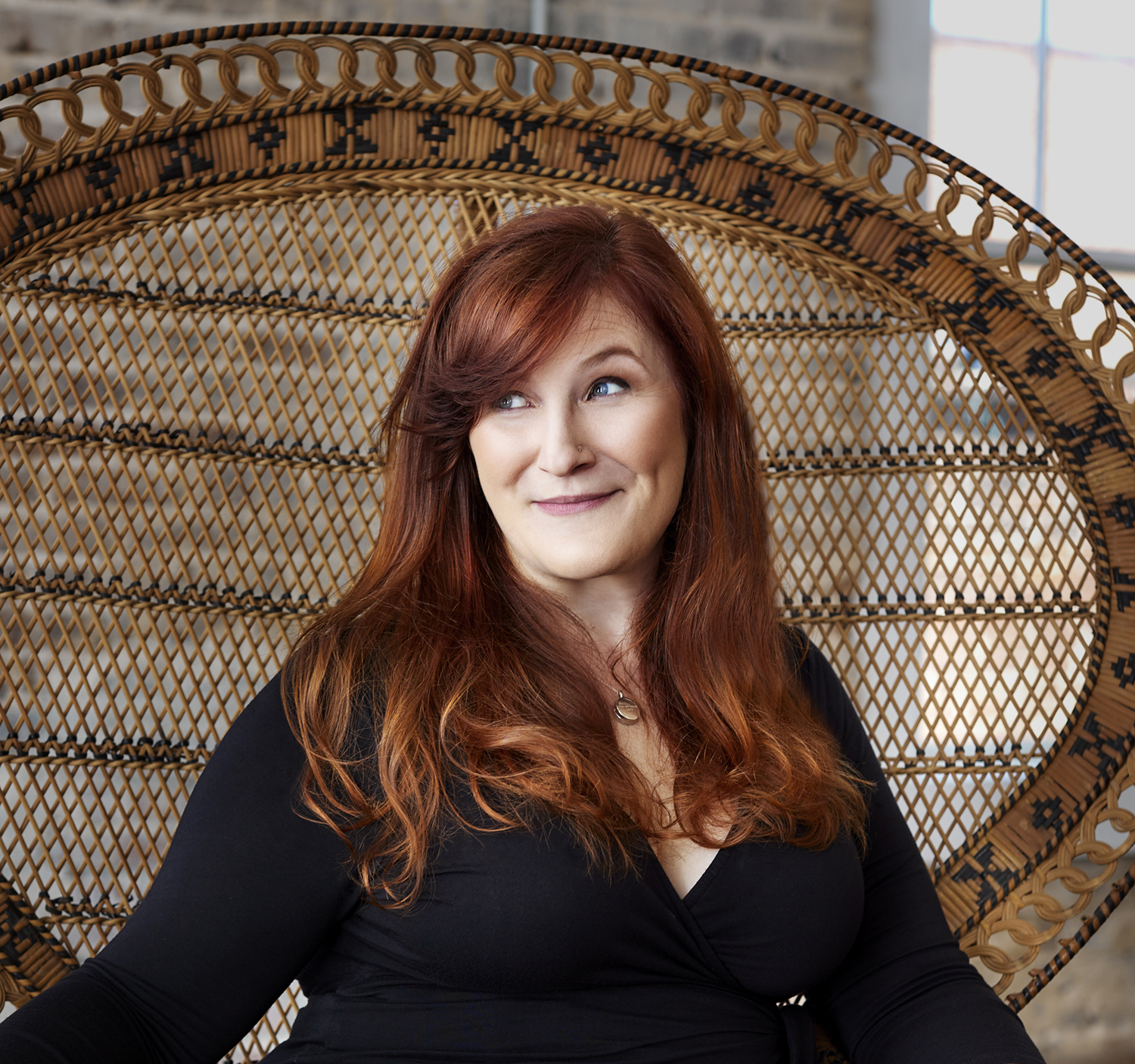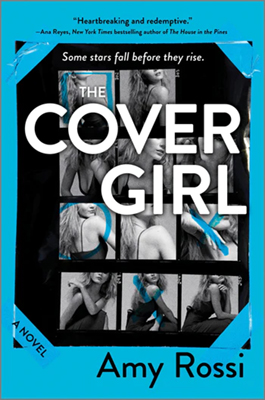
Writing Development
Amy Rossi, NC State’s director of development communications, publishes her debut novel.
Amy Rossi is NC State’s director of development communications, but outside her day job, she does another kind of storytelling. On Aug. 5, a longtime goal of hers will be realized when her debut novel, The Cover Girl, is published.
The narrative follows model Birdie Rhodes through two timelines as she builds her career from a young age and reflects on it later in life. At 15 years old, Birdie enters a relationship with a 31-year-old rock star — a choice that not only shapes her life, but the way she sees the world, for years to come. The novel takes readers to rock concerts and fashion shows, Paris and Pilates classes, the set of General Hospital and a “not-a-hospital” for the rich and famous. It explores complex relationships and is as endearing as it is heartbreaking. But it’s not a sad book. Rossi says, “I think there’s the message of hope in the end. It might not be a traditional happy ending, but I think there’s the idea that things can get better.”
Rossi, 40, went back to school when she was 28 to pursue her MFA in creative writing, leaving a comfortable job and her life in Massachusetts to study in Louisiana. Since then, she’s been writing in her spare time, after work and during her lunch hours. She started writing The Cover Girl more than seven years ago and says it’s been a labor of love. “You can get really sick of reading your own work through all the copyediting and proofreading. … You have to write the thing you want to write, because if you’re only writing for the market, or you’re only writing because you want to sell a book, you will bore yourself.” The long publication process hasn’t intimidated Rossi, though. A month before publication day of The Cover Girl, Rossi had already finished the first draft of her second novel. “It’s not readable,” she says. “It’s an absolutely garbage first draft.” But a garbage first draft is a vast improvement over, as she puts it, “the blank page [that] torments us all.”
Rossi sat down with NC State magazine a couple of weeks before The Cover Girl’s publication date to talk about the book, writing and classic rock music. You can hear her read from her book and pick up a signed copy on Aug. 5 at Quail Ridge Books in Raleigh.

How did you become interested in writing?
When I was in kindergarten, I wrote a book about a lost kitten who ends up being found in a mitten. (You can kind of see where I was going with that.) My teacher was so supportive of it. I drew pictures, and somebody bound it with cardboard and contact paper. It was a nice encouragement to keep going with it.
I always wrote as a child. I would read a book, and I’d want that book to continue. So, before I was aware of the concept of fan fiction, I was writing it to keep the stories that I liked going. And I wrote all through high school and college. Books were such a big part of my childhood. My parents would read to me, and I would check out armfuls of books from the library every summer. I always wanted to write my own.
What made you want to focus on a model?
I think modeling is something that’s misunderstood. It’s an illusion: there’s so much that goes on behind it. So it provided a nice metaphor for the novel.
The book is partly inspired by true events. There’s a lot that’s fictionalized, but it’s inspired by a particular scene on the Sunset Strip where a lot of the girls were models, and they were modeling for this very particular magazine based in Los Angeles. I have always been intrigued by the entertainment industry, and I even convinced my mother to let me go to modeling school when I was very young.
When Birdie makes the choice to be a model, she doesn’t foresee the power dynamics she’ll encounter. What made you want to explore the idea of power in your novel?
I think growing up a classic rock fan and listening to all these songs, I was vaguely aware that power imbalances were happening. I don’t know that I set out to write about power. It’s just something that sort of came up, and this idea that you can make a choice at 15, but do you understand you’re butting up against power structures? And how does that impact the rest of your life? Even if something seemed like it was your choice at the time, does it feel that way at 25? At 35? 45? At 55? That was really where I was interested in going. I think the power theme just emerged from there, because of that evolving idea of memory and agency and understanding your own past.
So many stories are male focused, but your book is female centered. The rock star doesn’t even have a name. How did you land on that decision?
I felt like he didn’t need a name. It doesn’t matter who he is, because he’s everywhere, and by not giving him a name, I felt like that gave Birdie more of her humanity back. It flips the script. He’s a blank, as much an object as the girl in his songs is. It also takes his biography out of it. A lot of times people excuse what happens when you have that emotional attachment. I needed him to be a looming figure and like a metaphor as well.
There is a moment in the book where a friend says something to Birdie that causes her to make a major change in her life. Have you ever had a moment like this that completely shook you out of your orbit?
I had a comfortable life after college. I had a good job; I had a good apartment. I was comfortable, but I wasn’t happy. And I was talking to my supervisor, who was also like a mentor to me, about career advancement, and he said, “What do you want?” And I was like, “Well, I want to be a writer.” He’d had an artistic career before his career in development, and he said, “If you want to be a writer, Rossi, then write.”
And that really knocked me out of my orbit, because I’d stopped writing after college, and I acted like writing was an island I had been banished from. I thought, Wouldn’t it be nice to go back there? But [talking to him made me realize] I could take myself there. I realized that I was going to have to be uncomfortable, and it was going to require sacrifices. I ended up leaving a comfortable union job and going to graduate school, leaving my life and friends and family in Massachusetts and embracing the complete unknown in Louisiana.
A lot of people want to find time for creative hobbies like writing. What advice would you share with them?
I feel like I need to put a disclaimer out there: I think it’s a lot harder when you’re a parent, and I’m not a parent. But it really goes back to that conversation I had with my boss: If you want to do something, you have to do it. I don’t want to be dismissive, because people’s lives are very busy, but sometimes you can find pockets of time. Sometimes it’s writing on your notes app, between your hair appointment and going to meet friends. Sometimes it’s staying up until two in the morning and writing. Sometimes it’s turning down a plan so you can write. But it’s also taking a lunch hour to write. The perfect moment to be creative is not going to present itself. But through that imperfection can come some really great things.
Amy Rossi photograph by Samantha Everette ’07.
Tell Us What You Think
Do you have a personal connection to this story? Did it spark a memory? Want to share your thoughts? Send us a letter, and we may include it in an upcoming issue of NC State magazine.


